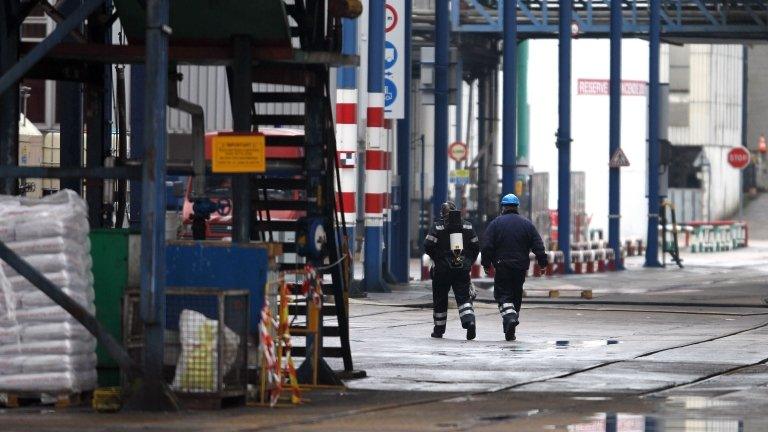Rouen chemical factory fire 'leaves our children in danger'
- Published
Firefighters tackle a blaze in the northern French city of Rouen
Residents in the French city of Rouen have been protesting against what they say is a cover up following a massive fire at a chemical storage facility.
Huge clouds of black smoke spewed into the air across north-western France as more than 5,000 tonnes of chemicals and oil burned at the site last week.
Authorities say tests carried out after the blaze at the Lubrizol plant indicated that the smoke was not toxic.
But environmental activists and unions accuse officials of "hiding the truth".
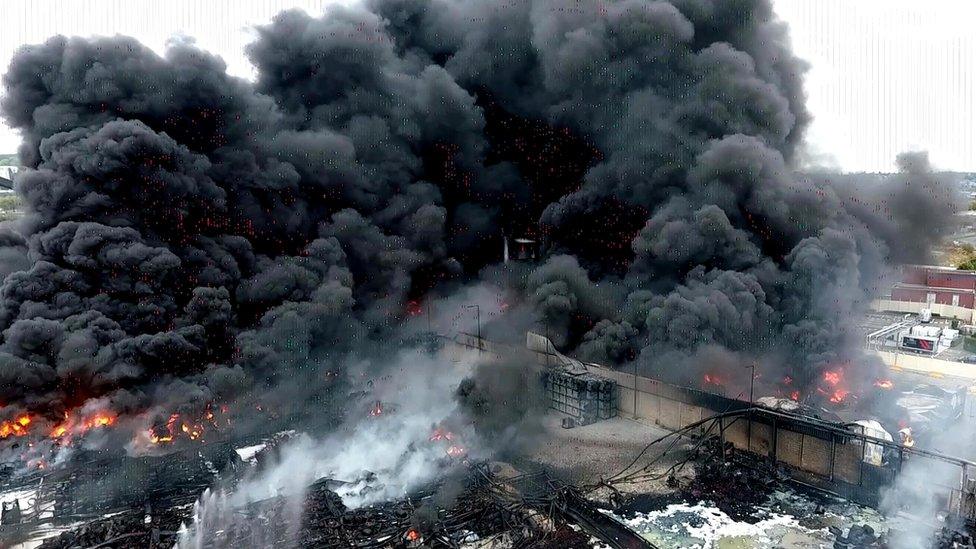
The storage facility at the Lubrizol factory housed tonnes of chemicals under an asbestos roof
On Tuesday, several schools were closed after children said they felt nauseous and complained of sore throats and eyes, local media reported.
Later, hundreds of people marched through Rouen carrying placards that read "our children are in danger"; "assurances for pupils" and "it's up to us to investigate".
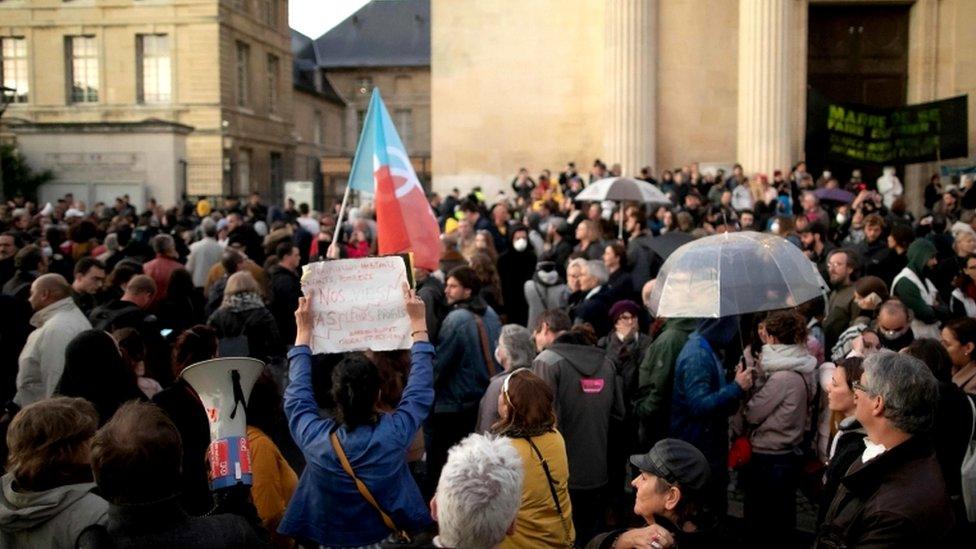
Hundreds of local residents took to the streets after schools were closed on Tuesday
The march, organised by unions and activists, called on authorities to fully investigate the incident at the plant and to share the findings relating to any possible impacts on public health.
The plant belongs to Lubrizol, a US chemical manufacturer owned by billionaire investor Warren Buffett.
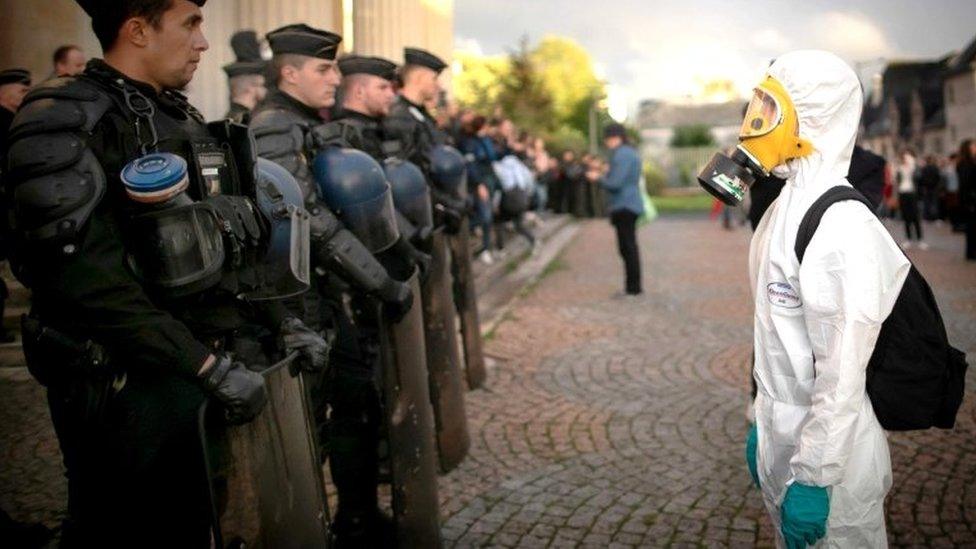
Rouen residents are demanding a full and transparent investigation into possible health impacts
In a statement days after the blaze, Lubrizol said that CCTV footage and eyewitness accounts had suggested that the fire started outside the factory grounds.
"The origin of the fire [appears to be] external to Lubrizol and the fire unfortunately spread on to our site," the company said, adding that it was fully co-operating with the police.
Police have yet to confirm the cause of the fire.
What are the dangers?
On Thursday 26 September, a fire took hold of a chemical storage facility in Rouen, a port city on the river Seine - one of France's biggest rivers - that has a population of more than 110,000.
The incident caused widespread panic and several surrounding towns advised residents to remain indoors.
According to local officials, the fire released mostly natural and organic substances such as hydrocarbons and mercaptan, a colourless additive to natural gas that has a pungent smell - a bit like rotten cabbages.
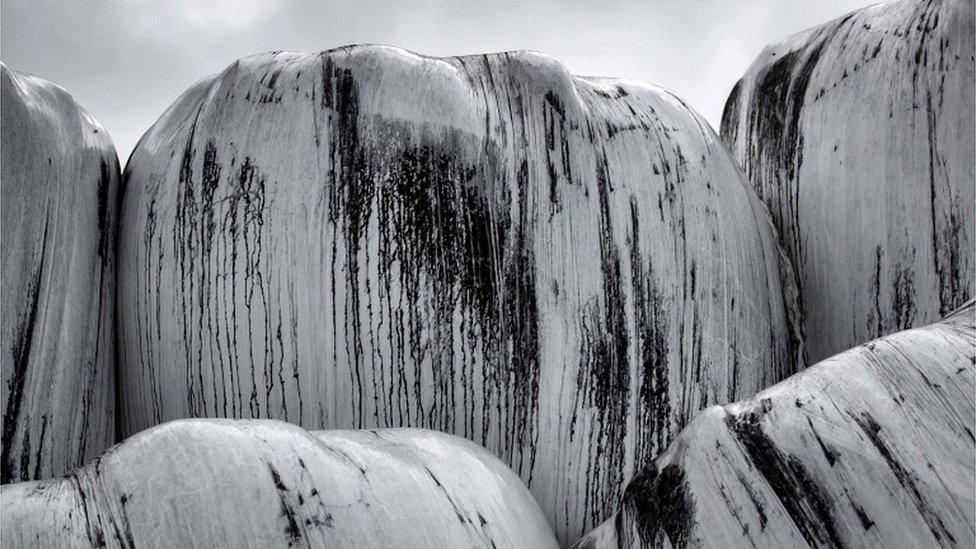
Straw wrapped in plastic is covered with black residue in Saint Martin-du-Vivier, near Rouen
Most of the particles released into the air were "quickly deposited on the ground in the form of soot", local authorities said, citing tests carried out to determine the presence of poisonous substances such as carbon monoxide, sulphur dioxide and hydrogen sulphide.
However, other concerns were raised, such as the collapse of the factory roof, which contained asbestos.
The latest information provided by the official website of the Seine-Maritime prefecture states that any risk of distribution of asbestos particles or fibres was "limited by the rapid collapse of the roof" (in French), external.
What is the latest advice?
The website goes on to advise residents that "the main risk is related to the accidental ingestion of soot, especially by very young children," and that toys and hands should be regularly cleaned.
It adds that tap water is safe, but warns residents not to consume fruit and vegetables grown in the garden if they appear to be soiled by soot.
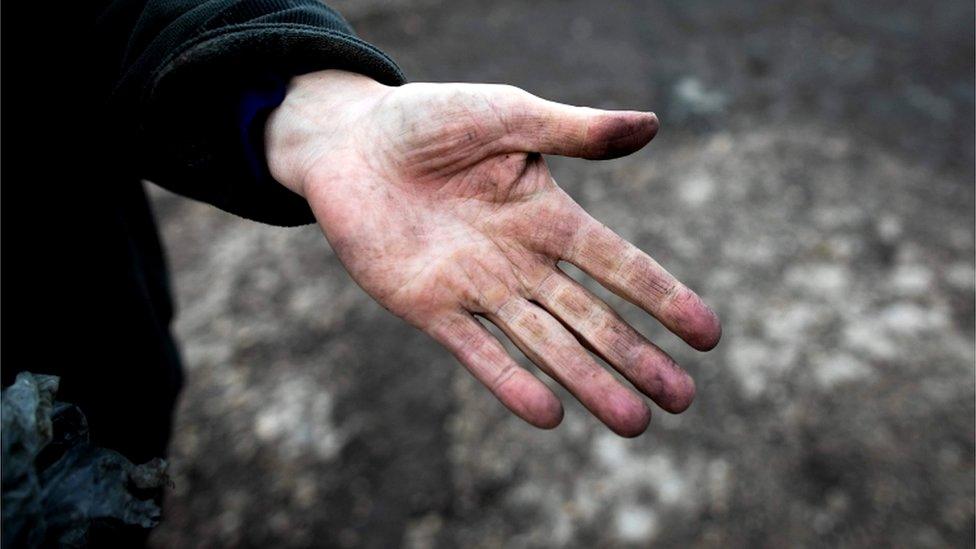
A farmer in Saint Martin-du-Vivier shows how black dust has spread
The prefect of Normandy, Pierre-André Durand, said that tests carried out shortly after the fire found no additional harmful toxins in the air and had shown that the water supply had not been contaminated.
In a interview with France's BFM news channel, Mr Durand said he had no interest in "lying or hiding the facts". "The government's line is transparency, transparency, transparency," he said.
France's Prime Minister Edouard Philippe, who said during an earlier visit to Rouen that the lingering smell left by the fire was "annoying but not harmful", promised on Tuesday to publish a full list of chemicals stocked at the Lubrizol plant.
The results of further tests into air quality and dust deposits are expected to be published in the coming days.
An investigation is under way to determine whether the fire could have been prevented, whether the resulting pollution posed serious health risks and whether anyone should be prosecuted over the incident.
- Published26 September 2019
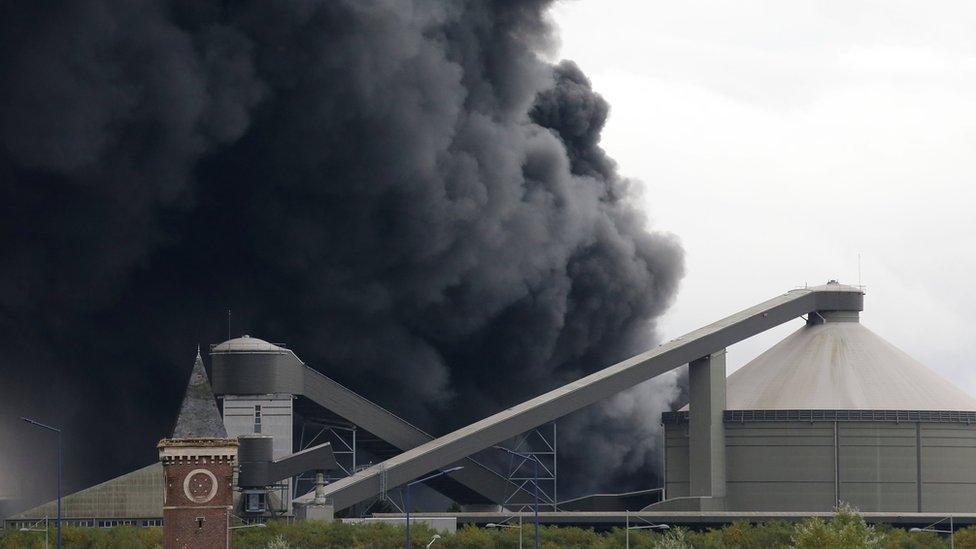
- Published22 January 2013
